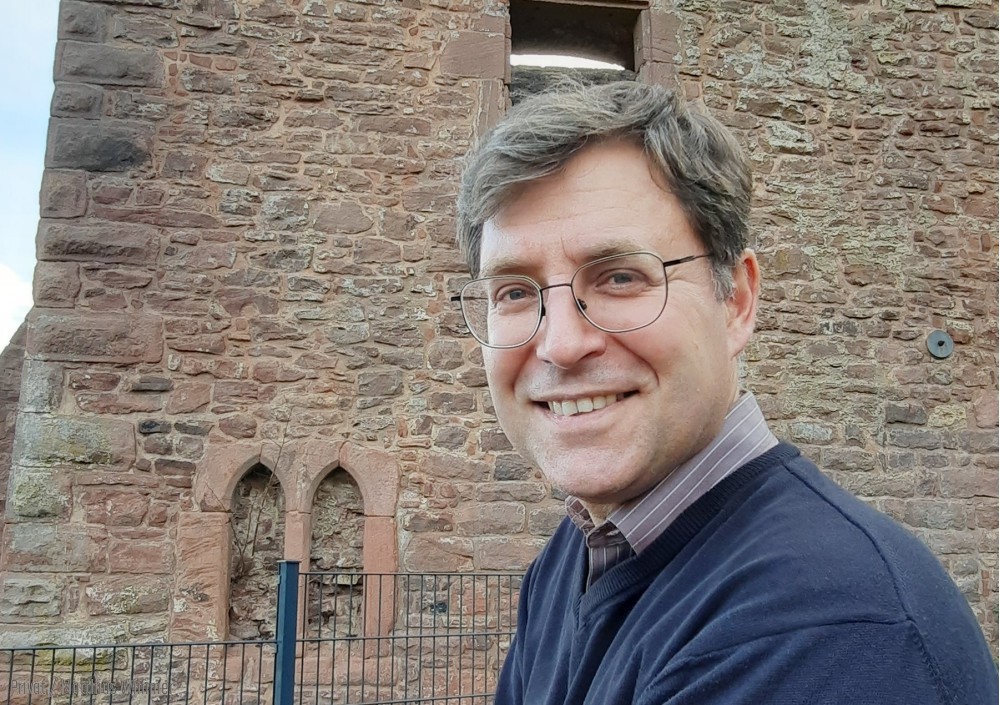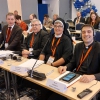Artículos

Interview with Matthias Wimmer - Victims Council in Diocese of Würzburg
The so-called synodal way ended on March 11, but many question marks remain. Everywhere there are discussions about how to deal with the decisions of the Synodal Way, and some dioceses have already started to implement them, partly against the official teaching of the Catholic Church or the express wish of the Holy See. The original mission of the synod was to make a contribution to coming to terms with abuse. From our point of view, however, this has only been achieved to a very limited extent. For this reason, Maria 1.0 would like to enter into conversation with those affected and reflect together with you on being and living Catholic after a personally experienced abuse. As an introduction to this topic, we were able to win Matthias Wimmer, the spokesman of the affected persons' advisory board of the diocese of Würzburg, for an interview.
Maria
1.0: Mr. Wimmer, thank you for allowing us to speak with you. What
does your Catholic faith mean to you?
Matthias Wimmer: The
Catholic faith is the most important thing in my life. It has shaped
me from childhood and accompanies me to this day - to put it casually
- through thick and thin.
Maria
1.0: When you were eight years old, you were abused by a priest over
a period of two years. How did you manage to deal with these
experiences and how did you experience personal healing?
Matthias Wimmer: As a child, you can't deal with such an experience at all. You don't realize what has happened until much later. Either the consequences of abuse hit a person at some point with full force or a very slowly growing ulcer develops in you, which sooner or later affects everything.
The only help I got in this situation was from my family, who believed me that the priest had done what he was accused of. Unlike other cases I know, I had to testify twice in court against the abuser. On the one hand, this was a terrible and painful experience to talk about such issues in front of complete strangers and even more so in the face of the abuser, but on the other hand, I learned early on to talk about it instead of keeping it bottled up. I think in hindsight that was at least better than having it come to the surface only in adulthood. I experienced a certain healing or reconciliation, especially with the Catholic Church, through the successor priest, who was able to give me and many others a new and, above all, more positive image of the Church. I am very happy and grateful about that because church and faith are inseparable for me.
Maria
1.0: How did you experience the clarification of abuse by the church
and how do you evaluate the efforts of the authorities officially
responsible for this?
Matthias Wimmer: I have to answer that in two ways:
On the one hand, my family and I were treated badly at the time of the crime, almost exactly 40 years ago. The diocese officials kept silent and tried to dismiss the whole thing. The local parish split into two groups: Some believed the children's stories (because I was not an isolated case), others vehemently defended the perpetrator and dismissed everything as fantasy.
On the other hand, at the beginning of 2000, statements were made by the church leaders from which one could read that a change in thinking had taken place. Especially since the beginning of the so-called abuse crisis, attempts have been made to take offensive action against abuse and to come to terms with the past. I see this positively for now. To what extent these efforts are a genuine and honest need or just a necessary evil that has to be worked through at the insistence of the public is not yet entirely clear to me.
Maria 1.0: Today, you are the spokesperson for the victims' council of the Diocese of Würzburg and in this function you deal with many victims of abuse. What is your task there? What needs and hardships do you see among those affected?
Matthias Wimmer: First and foremost, it is our task as an advisory board to help and accompany people who have experienced sexual abuse in the church. In particular, we must take these people by the hand and support them - if necessary, even against the diocesan authorities. Furthermore, the networking of those affected Bavaria-wide and nation-wide is our great concern. As a spokesperson, I have been able to participate in meetings of the Bavarian advisory councils several times, which has given me a concrete insight into this difficult matter. If current incidents should occur in church congregations, we as an advisory board offer assistance.
Those affected who turn
to us usually feel left alone and not taken seriously by the church.
Since victims of abuse in Germany can file a so-called application
for recognition of suffering, financial payments are made in many
cases, which unfortunately often lead to further suffering and
retraumatization, since the amount paid out often does not correspond
to the suffering experienced, let alone undo it. Since March of this
year, those affected have been able to appeal against these
decisions, which I am sure many will do. In principle, more openness
and transparency in the recognition procedures would be an additional
confidence-building measure.
Maria
1.0: The synodal way, which has existed in Germany since 2019, has
been constituted to respond to the cases of abuse. The SW has ended
for now and we would like to ask you for your assessment of it. How
would you basically assess the work of the SW in terms of its
objective - that is, coming to terms with the abuse?
Matthias Wimmer: The current reporting reflects very clearly what it was all about: self-promotion, power shifting, and discussion for the sake of discussion. The topic of abuse is only mentioned in passing in the reporting, and that is how I experienced it at the respective meetings. Specifically, the blessing of “couples who love each other” is hailed as great progress, but unfortunately it has nothing to do with abuse prevention. On the contrary, the statement of a responsible person of the BDKJ “Love can never be sin” makes my hair stand on end. The priest who abused me probably thought the same thing at the time. The same applies to the other topics, for which the abuse seemed to be only a means to an end.
Maria
1.0: As part of the fifth synodal assembly, there was also a
performance under the title “responsible:me”, which was intended
to help “make a statement sign against abuse.” Already the day
before, mirrors were available in the cathedral as part of this
performance, in which one was supposed to see oneself as a
perpetrator. The performance itself was designed in such a way that
the spectator was supposed to identify with the perpetrator. Among
others, people who had themselves been confronted with sexual
violence or abuse took part in this performance. Did you see this
performance and how did you perceive it?
Matthias Wimmer: I
watched the performance on the Internet and was somewhat astonished
at the way it was done. The very fact that the visitors - among them
victims of abuse - were supposed to meet themselves in the mirror as
perpetrators shows how ill-considered and far away from the victims
the plan was. In my opinion, the performance itself showed well with
some scenes how abuse and its consequences feel in people. However, I
found it disconcerting to have to depict this in a sacred space,
which for many people is a space of devotion and also a spiritual
shelter. In a way, the performance in the cathedral was therefore, in
my view, already a kind of abuse in the spiritual sense. It would
have been better to stage the performance at the beginning of the SW
in the meeting hall. Perhaps then the topic would have been more
strongly burned into the heads of the synod members. In any case, as
a person affected, I could well have done without this
performance.
Maria
1.0: In your eyes, has this performance been a step towards fruitful
abuse education, through which victims can feel understood and
portrayed?
Matthias Wimmer: This
probably depends greatly on the perspective of each person affected.
Just as it depends on the particular experience of abuse. Personally,
I could only partially find myself and my experiences in it.
Maria
1.0: What is your wish for how the church sets itself up in the
future? Do you have a wish for how other believers, who are not
personally confronted with the issue, can cooperate in healing or
fundamentally learn to deal with the issue that pastors have become
perpetrators and that sexual abuse has been covered up, without
turning their backs on the church?
Matthias Wimmer: Believers must take the scandal of abuse seriously. It must not be played down. Victims must be heard and, if necessary, must first regain trust in the church. This can only happen by coming to terms with the truth. Crimes must be punished consistently - of course also with the involvement of the secular prosecution authorities - no matter who the accused is.
But the church is more than a secular institution. It is holy by its very nature. Its members should also strive for this holiness. Thus, it is forbidden to cover up, trivialize, and dismiss crimes, since the perpetrators sin not only against the abused person, who is abused as the object of the perpetrator, but also against the Church and its founder. Healing and reconciliation can therefore only happen if the perpetrators and offenses are named and punished unconditionally. But it should be clear to all believers: It is not the victim of abuse who harms the church’s purpose, but quite alone the perpetrator and his helpers!
Maria 1.0: Thank you very much for taking the time to talk with us! We wish you with all our hearts God's rich blessing, especially for your important service in the victims council of your diocese.


